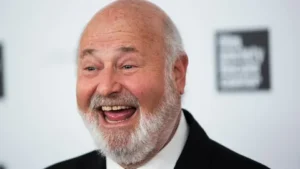There’s a moment in 1982 that defines everything you need to know about Margaret Thatcher. Standing before Parliament, with Argentina’s forces occupying British territory 8,000 miles away, she didn’t flinch. She didn’t negotiate. She sent warships.
That’s the woman we’re talking about today.
Love her or loathe her – and trust me, people do both with equal passion – Margaret Thatcher remains one of the most fascinating political figures of the 20th century. She wasn’t just Britain’s first female Prime Minister; she was a force of nature who redrew the political map, crushed her enemies (sometimes literally, ask the coal miners), and changed what it meant to be conservative.
But here’s what most people don’t know: before she was the Iron Lady, she was just Maggie Roberts, a grocer’s daughter from a small English town who had no business becoming Prime Minister. Except she did. And boy, did she make it count.
Let me take you through the extraordinary life of Margaret Thatcher – the woman who proved that sometimes, the lady really isn’t for turning.
From Grantham to Glory: Margaret Thatcher’s Early Life
Who Was Margaret Thatcher and Why Was She Important?
Before we dive deep, let’s set the stage. Margaret Thatcher biography isn’t just about one woman – it’s about how one person fundamentally transformed an entire nation’s economy, politics, and global standing.
Margaret Hilda Thatcher (née Roberts) served as British Prime Minister from 1979 to 1990, making her the longest-serving UK Prime Minister of the 20th century. But statistics don’t capture the seismic impact she had. She was Europe’s first female leader of a major democratic nation, and she wielded power like a medieval queen with a modern arsenal.
Her importance? She killed socialism in Britain. She broke the unions. She privatized everything that wasn’t nailed down. She went to war in the Falklands. She stood shoulder-to-shoulder with Ronald Reagan against the Soviet Union. She fundamentally rewrote the social contract between citizen and state.
Whether you think that’s brilliant or horrific largely depends on your politics. But you can’t deny she mattered.
What Was Margaret Thatcher’s Early Life Like?
Here’s where the story gets interesting – and inspirational, depending on your perspective.
Margaret Thatcher early life childhood reads like a classic British rags-to-riches tale, except with more conservative economics and fewer happy endings for coal miners.
Born October 13, 1925, in Grantham, Lincolnshire, young Margaret Roberts grew up above her father’s grocery shop. Her dad, Alfred Roberts, wasn’t just a shopkeeper – he was a local councilor, Methodist preacher, and the kind of self-made man who believed in hard work, thrift, and personal responsibility. Sound familiar? That’s because these values became the bedrock of Thatcherism.
The Roberts family didn’t have indoor plumbing until Margaret was a teenager. No hot water. No frivolities. Just work, chapel, and more work.
But here’s what her childhood gave her: an unshakeable belief in meritocracy. If she could rise from a simple shop above Grantham High Street to 10 Downing Street, then anyone could make it. That belief – naive or inspiring, you decide – shaped every policy she ever implemented.
Young Margaret was brilliant, driven, and relentlessly ambitious. She won a scholarship to Somerville College, Oxford, where she studied chemistry. Yes, chemistry! The Iron Lady was literally a scientist before she became a politician. She worked as a research chemist, developing methods to preserve ice cream. I’m not making this up – Britain’s most formidable leader once helped make your 99 Flake possible.
The Rise of the Iron Lady
How Did Margaret Thatcher Become Prime Minister?
The journey from ice cream chemist to Prime Minister wasn’t exactly linear. In 1951, she married Denis Thatcher, a wealthy businessman whose money allowed Margaret to quit chemistry and study law while raising twins (Carol and Mark, born 1953).
Margaret Thatcher Denis husband was more than just a supportive spouse – he was her financial backer, her emotional rock, and the man who stood behind one of history’s most powerful women. Their relationship challenges every stereotype about traditional marriages because Denis genuinely believed in Margaret’s ambition.
She became a barrister, then entered Parliament in 1959 as the Conservative MP for Finchley. For years, she was the only woman in Edward Heath’s Cabinet, serving as Education Secretary from 1970-74. She was so unpopular in that role – she eliminated free milk for schoolchildren, earning the nickname “Thatcher the Milk Snatcher” – that most people assumed her political career was finished.
They were spectacularly wrong.
In 1975, she challenged Heath for leadership of the Conservative Party and won. Imagine that – a woman challenging and defeating the male establishment of Britain’s oldest political party. It was revolutionary.
Four years later, in May 1979, Britain was on its knees. Strikes everywhere. Garbage piling up in streets. The dead going unburied. The “Winter of Discontent” had destroyed the Labour government’s credibility.
Enter Thatcher, promising to restore British greatness. At 53, she became Prime Minister – the first woman to hold the office in British history.
And she was just getting started.
Why Was Thatcher Called “The Iron Lady”?
Here’s my favorite origin story in political history.
In January 1976, a Soviet journalist named Yuri Gavrilov wrote a piece in the Red Star newspaper attacking Thatcher for her fierce anti-communist rhetoric. He called her the “Iron Lady,” intending it as an insult – suggesting she was cold, inflexible, and hawkish.
Thatcher’s response? She loved it.
She embraced the nickname, wearing it like armor. “The Russians said I was an Iron Lady,” she declared. “They were right.”
Why was Thatcher called Iron Lady became less of a question and more of a brand. It perfectly captured her uncompromising style, her refusal to back down, her willingness to make tough decisions regardless of popularity.
The nickname was cemented during the Falklands War Margaret Thatcher led in 1982. When Argentina invaded the Falkland Islands – a tiny British territory in the South Atlantic – many expected negotiations. Thatcher sent warships instead. The war lasted 74 days, cost 907 lives, and ended with complete British victory.
Right or wrong, that’s Iron Lady behavior.
Thatcher in Power: Policies That Changed Britain
What Were Margaret Thatcher’s Major Policies and Achievements?
Alright, let’s talk about the meat of Margaret Thatcher economic policies – because this is where things get controversial.
The Thatcher Privatization Program:
When Thatcher took office, the British government owned vast chunks of the economy – telecom, gas, water, electricity, airlines, railways, coal mines, steel mills. By the time she left, most of it was in private hands.
| Industry | Year Privatized | Impact |
|---|---|---|
| British Telecom | 1984 | First major privatization; shares offered to public |
| British Gas | 1986 | “Tell Sid” campaign made shareholders of ordinary people |
| British Airways | 1987 | Transformed from loss-making to profitable |
| Water & Electricity | 1989-90 | Controversial sales of essential utilities |
| Steel, Coal, Railways | Various | Mass job losses; industrial decline |
The logic? Private companies run things more efficiently than governments. Competition drives innovation. Individual ownership creates stake in capitalism’s success.
The result? Depends who you ask. Shareholders and consumers benefited from some privatizations. But entire communities dependent on state industries were devastated.
Breaking the Unions:
The Margaret Thatcher miners strike of 1984-85 was perhaps her defining domestic battle. Led by Arthur Scargill, the National Union of Mineworkers struck for a year to protest pit closures. Thatcher refused to negotiate, viewing it as a showdown between elected government and union power.
The government won. The strike collapsed in March 1985. The miners returned to work defeated, and British trade union power was effectively broken.
Was this necessary economic reform or cruel destruction of working-class communities? History hasn’t decided – and probably never will.
Economic Reforms:
- Slashed income taxes (top rate from 83% to 40%)
- Reduced government spending (except defense)
- Controlled money supply to fight inflation
- Deregulated financial markets (“Big Bang” of 1986)
- Promoted home ownership and share ownership
The Results:
By 1990, Britain had transformed from the “sick man of Europe” to a dynamic, modern economy. Unemployment, which peaked at 3 million in 1984, eventually fell. Inflation was tamed. Economic growth returned.
But the social cost was enormous. Manufacturing collapsed. Entire regions deindustrialized. Inequality soared. The gap between rich and poor widened dramatically.
What Was Thatcherism and Its Impact on Britain?
Thatcherism isn’t just about economic policy – it’s a whole philosophy. Think of it as a British version of Reaganomics, but with more tea and less optimism.
Core principles:
- Free markets trump government planning
- Individual responsibility over collective welfare
- Private enterprise over state ownership
- Traditional values alongside economic liberalism
- Strong national defense and skepticism of Europe
The impact? Britain today is fundamentally a Thatcherite country. Even Tony Blair’s Labour Party accepted most of her economic reforms. The welfare state was trimmed. Unions remained weak. Privatization stuck.
But so did the divisions. Modern Britain’s regional inequalities, the London-versus-everywhere-else divide, the bitter culture wars – many trace back to Thatcherism’s uneven impact.
The Special Relationship: Thatcher and Reagan
What Was Margaret Thatcher’s Relationship with Ronald Reagan?
This is one of history’s great political partnerships – and yes, there’s evidence they genuinely liked each other beyond the photo ops.
The Thatcher Reagan relationship defined the 1980s. Both were conservative revolutionaries determined to roll back socialism at home and communism abroad. Both believed in free markets, strong defense, and Western values.
They met regularly, exchanged personal letters, and coordinated policy on everything from the Cold War to economic reform. Reagan called her “the best man in England.” She mourned him genuinely when he developed Alzheimer’s.
Thatcher Cold War policies aligned perfectly with Reagan’s. Together they:
- Increased defense spending to challenge Soviet Union
- Supported anti-communist movements worldwide
- Negotiated from strength with Mikhail Gorbachev
- Accelerated the arms race that helped bankrupt the USSR
But they disagreed too. Thatcher was furious when Reagan didn’t back Britain immediately during the Falklands War. She thought his Strategic Defense Initiative (“Star Wars”) was dangerous fantasy. She distrusted his optimism, preferring her own steely realism.
Their partnership proved that men and women can have powerful, platonic political relationships based on shared values and mutual respect. Revolutionary in its own way.
The Fall: Why the Iron Lady Resigned
Why Did Margaret Thatcher Resign as Prime Minister?
Even iron can bend and break. By 1990, Thatcher’s invincibility was cracking.
The Margaret Thatcher resignation 1990 came from multiple pressures:
The Poll Tax Disaster:
Her “Community Charge” – a flat-rate tax on every adult regardless of income – was catastrophically unpopular. Rich and poor paid the same amount. Riots erupted. Conservative MPs panicked.
European Division:
Thatcher grew increasingly hostile to European integration, causing splits in her Cabinet. Her famous Bruges speech opposing European federalism alienated pro-Europe Conservatives.
Economic Recession:
After years of growth, recession returned. Interest rates hit 15%. Inflation rose. The economic miracle looked shaky.
Leadership Challenge:
In November 1990, Michael Heseltine challenged her for party leadership. She won the first ballot but not by enough margin to avoid a second round. Her Cabinet, sensing weakness, advised her to resign.
On November 22, 1990, she announced her resignation. She left Downing Street in tears, saying: “We’re leaving Downing Street for the last time after eleven and a half wonderful years.”
John Major succeeded her. She never forgave the colleagues who pushed her out.
The lesson? Even the most powerful leaders eventually fall, usually betrayed by their own party.
Life After Power: Legacy and Death
How Did Margaret Thatcher Die and What Was Her Legacy?
After leaving office, Thatcher remained active – making speeches, writing memoirs, and making life difficult for John Major by criticizing from the sidelines.
She was ennobled as Baroness Thatcher of Kesteven in 1992. Denis died in 2003, devastating her. She developed dementia, gradually losing the steel-trap mind that defined her.
Thatcher death and funeral occurred on April 8, 2013. She was 87, dying after a stroke at the Ritz Hotel in London.
Her funeral, held at St. Paul’s Cathedral on April 17, 2013, was a ceremonial affair with full military honors – normally reserved for royalty. Queen Elizabeth II attended, the first time a reigning monarch had attended a Prime Minister’s funeral since Churchill in 1965.
But Britain’s response revealed her divisive legacy. While supporters mourned, opponents celebrated in the streets. “Ding Dong! The Witch Is Dead” from The Wizard of Oz reached number two on the UK charts as a protest. Some threw parties. Others wept.
That’s the Margaret Thatcher controversial legacy in a nutshell: she transformed Britain, but half the country has never forgiven her.
Thatcher in Popular Culture
What Books and Films Have Been Made About Margaret Thatcher?
The Iron Lady movie Meryl Streep starred in (2011) is the most famous portrayal. Streep won the Academy Award for Best Actress, capturing Thatcher’s voice, mannerisms, and steely determination. The film focuses on her later years with dementia, using flashbacks to show her rise.
Critics split – some praised Streep’s performance while criticizing the film’s focus on personal decline rather than political substance. Thatcher’s children reportedly hated it.
Other notable portrayals:
- The Crown (Netflix): Gillian Anderson plays Thatcher in Season 4, exploring her complex relationship with Queen Elizabeth II
- The Long Walk to Finchley (2008): Andrea Riseborough as young Margaret
- Multiple documentaries and biographical series
Books worth reading:
- Charles Moore’s authorized three-volume biography (definitive but sympathetic)
- Hugo Young’s “One of Us” (critical but fair)
- Thatcher’s own memoirs: “The Downing Street Years” and “The Path to Power”
- Jonathan Aitken’s biography
- Various academic analyses of Thatcherism
The Quotes That Defined Her
Margaret Thatcher Quotes Famous and Memorable
A leader is often remembered by what they said. Thatcher’s words reveal her philosophy:
On determination:
“The lady’s not for turning.” (1980 – refusing to change economic policy despite recession)
On power:
“In politics, if you want anything said, ask a man. If you want anything done, ask a woman.”
On consensus:
“To me, consensus seems to be the process of abandoning all beliefs, principles, values and policies. So it is something in which no one believes and to which no one objects.”
On society:
“There is no such thing as society. There are individual men and women and there are families.” (Her most controversial quote, often misunderstood)
On economics:
“The problem with socialism is that you eventually run out of other people’s money.”
On Europe:
“No! No! No!” (Rejecting increased European integration in Parliament, 1990)
These quotes reveal a leader who valued conviction over compromise, individualism over collectivism, and strength over flexibility.
Understanding Thatcher Today: What Can We Learn?
Here’s what I find fascinating about Thatcher biography in 2025: she’s become more relevant, not less.
Current political debates – about government size, individual responsibility, national sovereignty, economic inequality – all echo Thatcherite themes. Brexit reflected her Euroscepticism. Debates about welfare reflect her emphasis on personal responsibility. Arguments about unions, privatization, and free markets all go back to battles she fought.
Lessons from Thatcher’s life:
1. Conviction Politics Can Win Thatcher proved that sticking to unpopular principles can succeed – if you’re willing to weather the storm and wait for results.
2. Gender Doesn’t Define Leadership Style She wasn’t a “female leader” in style – she was simply a leader who happened to be female. She never played the gender card, never asked for special treatment.
3. Economic Transformation Requires Political Courage Changing an economy fundamentally means accepting short-term pain for long-term gain. It also means accepting that some people will suffer.
4. Legacy Is Complicated There’s no simple verdict on Thatcher. She saved Britain’s economy but destroyed communities. She broke union power but increased inequality. She restored British prestige but divided the nation.
5. Even Iron Can Break Her downfall teaches that political support is fragile. The colleagues who cheered her victories turned on her when she became a liability.
The Final Verdict: Hero or Villain?
Here’s my honest take: Margaret Thatcher was both.
She was a grocer’s daughter who broke through every barrier to reach the top. She was a woman in a man’s world who refused to apologize for her ambition. She was a leader who genuinely believed her policies would help ordinary people.
She was also ruthless, divisive, and willing to sacrifice communities for economic theory. She was stubborn to a fault, unable to recognize when she’d gone too far. She was more comfortable with power than compassion.
The Britain she left behind in 1990 was richer, more dynamic, and more globally competitive. It was also more unequal, more divided, and had lost much of its industrial heart.
Your verdict on Thatcher likely depends on whether you value economic efficiency over social solidarity, individual success over collective welfare, and free markets over government protection.
Conclusion: The Woman Who Changed Everything
As I finish writing this Thatcher biography, I’m struck by one thought: we don’t make leaders like this anymore.
Love her politics or hate them, Thatcher had something rare in modern politics – genuine conviction. She believed what she said. She acted on her principles even when they made her unpopular. She was willing to lose rather than compromise.
Whether that’s admirable or terrifying depends on your perspective.
What’s undeniable is her impact. Modern Britain – for better or worse – is Thatcher’s Britain. The Conservative Party is still her party. Even Labour accepted her economic settlement. The debates we have today echo arguments she started.
From a grocer’s shop in Grantham to the commanding heights of global power, Margaret Thatcher’s journey is remarkable by any measure. The first female Prime Minister Britain produced changed her country more fundamentally than any leader since Churchill.
The Iron Lady is gone, but her legacy – controversial, complicated, and consequential – endures.
What’s your take on Margaret Thatcher’s legacy? Was she the savior who rescued Britain from decline, or the villain who destroyed communities and increased inequality? Share your thoughts in the comments below – I promise, this is one debate that never gets old.
Want to dive deeper into political biographies and leadership lessons from history’s most fascinating figures? Subscribe to our newsletter for weekly insights into the people who shaped our world.








